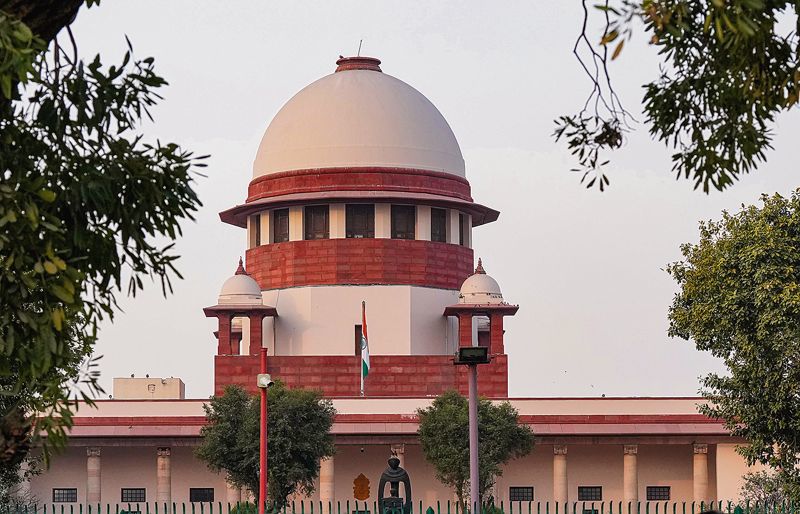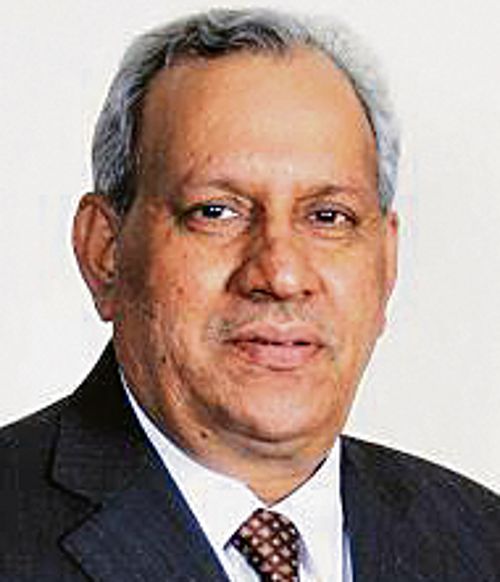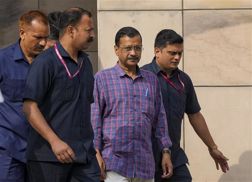
CONTRAST: Judgments by the Supreme Court in various cases reflect its oscillation between restrictive and liberal interpretations of bail conditions. PTI
Ranbir Singh
IN the realm of the criminal justice system, bail serves more than just a procedural function. It is a shield that protects the personal freedom of an accused against legal proceedings. This idea, deeply intertwined with the pursuit of equitable justice, resonates profoundly with the essence of Article 21 of the Constitution, which upholds the right to life and personal liberty as sacrosanct, only to be curtailed by a procedure prescribed by law. Bail ensures that people are not unfairly kept in jail before their trial, balancing the need for justice with the individual’s rights. Detention before trial can have profound negative effects on individuals. Bail helps mitigate those potential injustices.
The law governing the grant of bail in India categorises offences as bailable and non-bailable, guiding the exercise of judicial discretion and the conditions under which bail may be granted. For bailable offences, the accused is entitled to bail by right under Section 436 of the Code of Criminal Procedure (CrPC), provided he complies with the set bail conditions. In non-bailable offences, bail is not a right but is subject to judicial discretion. The CrPC also allows for specific conditions to be imposed when granting bail to ensure that the accused complies with the legal requirements and to safeguard the judicial process.
Over time, the Indian judiciary has established specific norms that shape how judges use their discretion when granting bail. Judges deciding on bail for non-bailable offences must consider several factors, including the gravity of the offence, the nature of the evidence and the potential risk of the accused tampering with evidence or fleeing. Such judicial discretion in granting bail requires a balance between the rights of the accused and the nature of the charges. Although a detailed examination of evidence is not necessary at the bail stage, the judge must provide reasons, particularly when dealing with serious crimes, to justify the grant of bail. This rationale is crucial to ensuring that the decision is based on thoughtful consideration rather than a superficial assessment. Further, denying bail should not serve as a punitive measure before a conviction, respecting the principle of the presumption of innocence. In Sanjay Chandra v CBI (2012), the Supreme Court held that the object of bail is neither punitive nor preventative; it is merely to secure the appearance of the accused at the trial by a reasonable amount of bail. Additionally, the denial of bail can significantly impact the right of the accused to a fair trial, especially in terms of preparing a defence with legal counsel in a restricted environment. Ultimately, judicial rulings have consistently emphasised that bail-related decisions are based on the specific merits of each case, underscoring that there is no one-size-fits-all approach to granting bail.
There was a time when the Supreme Court adopted a liberal approach of ‘bail, not jail’, and weighed in favour of the presumption of innocence while balancing the need to protect society by incarcerating the accused. However, over decades, the judicial approach to bail in India has seen a marked evolution, illustrated by contrasting judgments in notable cases. Pappu Yadav vs CBI (2007), involving a high-profile political figure accused of murder, saw the apex court prioritise societal interest over individual liberty, emphasising serious allegations over prolonged detention without conviction. This stance somewhat contradicted the presumption of innocence, leaning towards pre-trial detention as a quasi-punitive measure, despite the lack of direct proof of influencing of witnesses or tampering with evidence by the accused. Conversely, the 2G scam case — Sanjay Chandra vs CBI (2012) — marked a return to the principle of ‘bail, not jail’, with the SC overturning the Delhi High Court’s decision that had underscored the gravity of economic offences as a basis for bail denial. These cases reflect the Supreme Court’s oscillation between restrictive and liberal bail interpretations.
In cases of economic offences covered by special statutes, the judiciary has developed distinct standards for granting bail, recognising the unique and prolonged impact of such crimes compared to general offences. Economic offences, exemplified by cases like money laundering, are considered continuing offences because their commission or consequences stretch over a long period of time. The SC, in State of Bihar vs Deokaran Nenshi (1973), elaborated on this concept, highlighting the challenge in determining the end of such crimes. The complexity arises because the proceeds from the crime can be used indefinitely, making it difficult to ascertain when the criminal act concludes. Again, in YS Jagan Mohan Reddy vs CBI (2013), the top court reiterated that economic offences are treated as a separate class of crime because of their broad impact on society and the nation’s economic stability.
Another critical aspect of bail considerations for such offences are the ‘twin conditions’ for bail, especially under statutes like the Prevention of Money Laundering Act (PMLA), 2002. These conditions require the public prosecutor to have the opportunity to oppose bail and, if opposed, necessitate the court to be satisfied with reasonable grounds that the accused is not guilty and won’t commit further offences while on bail. This approach signifies a higher threshold for bail in economic offences, ensuring a rigorous examination of the accused person’s potential guilt and the risk of ongoing criminal activity. Additionally, the bail procedures in such cases are enshrined in various special laws, including the Narcotic Drugs and Psychotropic Substances Act, 1985, and the Unlawful Activities (Prevention) Act, 1967, among others. These laws impose additional obligations on courts, stressing the grave nature of economic crimes and their significant societal and economic repercussions. The judiciary’s stringent standards for bail in the case of an economic offence reflect a focused concern on protecting the democratic structure and the national economy from the detrimental effects of such crimes.
The judicial approach to bail in India has evolved significantly, underscored by a fundamental shift from a liberal ‘bail, not jail’ philosophy towards a more nuanced consideration of societal interests and the gravity of crimes. However, the application of particularly strict standards in the context of economic offences raises concerns. The possibility that stringent bail conditions could be counterproductive, potentially infringing on personal liberties without serving the intended protective role for society, cannot be overlooked. The introduction of ‘twin conditions’ for bail in statutes like the PMLA underlines a dedicated effort to mitigate the detrimental effects of such offences. Yet, the challenge remains to strike a balance that neither compromises the fundamental right to personal liberty nor ignores the significant risks posed by economic crimes to societal wellbeing. This balance is essential not only for upholding the ideals of justice and liberty but also for maintaining public confidence in the judicial process.
Join Whatsapp Channel of The Tribune for latest updates.



























